Film Name:大護法 / Dahufa
Dahufa lived up to my expectations. On a 10-point scale, the finished product alone deserves a solid 7. Considering the current creative environment for domestic films and animation, an 8 is well-deserved. Factor in personal emotional attachment, and I’d even be tempted to give it a 9…
When the lights came up after the credits rolled, I heard many audience members around me saying, “I didn’t get it.” I suppose that’s precisely the film’s signature trait: it’s anything but simple. It’s not the kind of movie you can half-watch while scrolling through social media, glancing up occasionally, and still grasp its meaning.
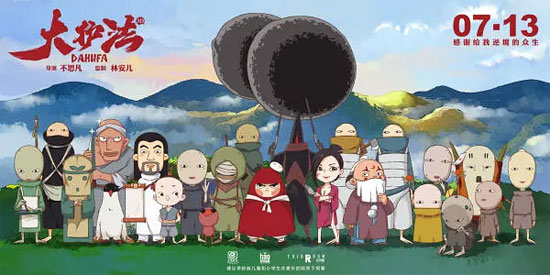
But if you truly engage with it, you’ll find the story isn’t as obscure as it seems. Everyone can grasp some meaning—the more superficial might offer a sentence or two about Peanut Town’s symbolism, while deeper exploration could fill pages analyzing its layers (all images in this article are official posters and trailer screenshots).
Adult animation
“Bloody violence” is likely an inescapable label for “Dahufa,” considering it’s China’s first domestically produced film to receive a PG-13 rating—let alone being an animated feature.
Though few characters in the film truly resemble humans, with most being “peanut people” possessing only partial human features, the ruthless and decisive slaughter depicted is anything but ambiguous:
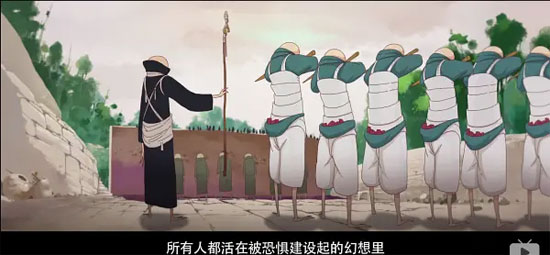
The Enforcers slaughtered the Awakened with utter disregard—some were captured and executed individually, others were gunned down en masse. The Butchers deftly dismembered the Peanut People’s corpses. Masters like the Great Protector and Rodan showed no hesitation when it came to shooting to kill—every bullet was a headshot, every strike fatal…
Though the Peanut People weren’t considered “human,” with their blue-green blood and deaths carrying an inexplicable sense of incongruity—when you witness severed limbs strewn about evoking real battlefields, when the ant-monkeys soaking in jars resemble infant specimens preserved in formaldehyde, when the cattle-like residents of Peanut Town speak…
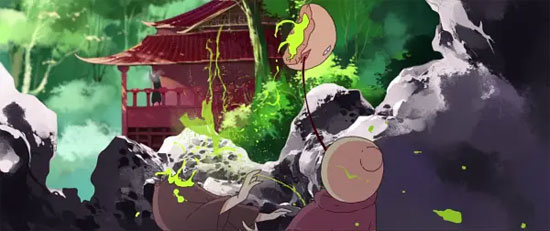
If you truly immerse yourself in this story, all the seemingly incongruous scenes will hit you like the blood in a live-action film—stimulating, shocking, and even more intense.
Yet all the violent, bloody, and terrifying metaphors—alongside the ink-wash painting aesthetic, the rhythmic score, and the masterfully paced voice acting—serve the characters and narrative. They define this film’s unique voice without ever overshadowing it. Precisely because of this, “Dahufa” remains resilient to scrutiny and examination even when stripped of its surface layers to reveal its core.
Totalitarian rule
Here’s a brief overview of the story’s basic setting (spoiler alert once again).
The Grand Protector of Yiwai Kingdom accidentally stumbles into Peanut Town while searching for the missing crown prince, only to become entangled in the conspiracy unfolding there—
Ouyang Jian, an elderly man whose family fortune has declined, guards the secret of the “ant-monkeys,” systematically cultivating these creatures within their nests.
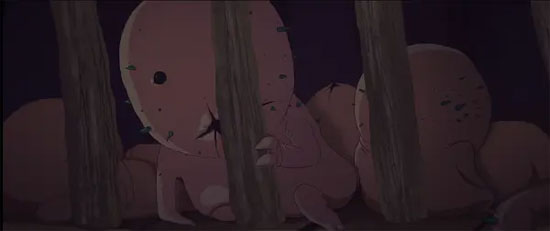
Ji’an’s cultivation methods are exceptionally brutal and cruel. At least half of the ant-monkeys die shortly after birth, with only the survivors reaching maturity. As they grow, these ant-monkeys gradually take on human form and develop partial self-awareness—they become the “Peanut People.”
As their deity, Ji’an assigned Peanut People to roles like Seed Nurturers, Ritual Practitioners, Executioners, Oil Refiner, and Noodle Distributor. Together, they cultivated and ruled the remaining residents of Peanut Town, awaiting the gradual emergence of “ghost mushrooms” from their bodies.
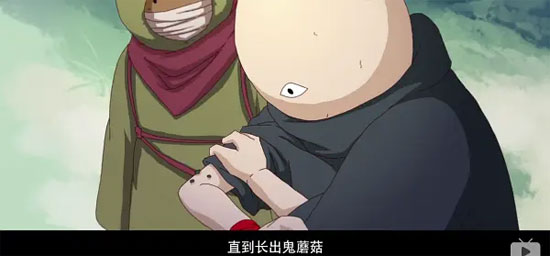
This was actually a sign of further maturation for the Peanut People. Aside from leaving minor traces after shedding, it posed no significant threat.
But Gian defined this phenomenon as a severe, malignant contagion. Upon discovery, it was punishable by death. His true purpose was to send the corpses of deceased Peanut People to the “Slaughterers” for Butcher Mao to dissect them, extracting the black stones grown within their brains: Black Gu Stones.
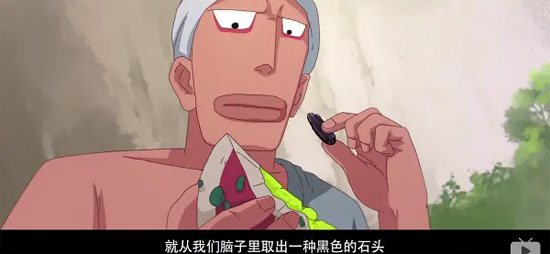
It was said that Black Gu Stones were the fruit of fear and hatred, highly toxic and hallucinogenic. A single stone could drive an entire village or town mad with murderous frenzy, leading to their complete annihilation. They could serve as a “weapon of mass destruction” for military campaigns and state governance.
Ouyang Jian sought to leverage this power to reclaim his status in the secular world while simultaneously imposing extreme, oppressive rule over Peanut Town. When the Peanut People’s shaman and Xiao Jiang developed self-awareness and began to speak, he branded them heretical plague demons and executed them.
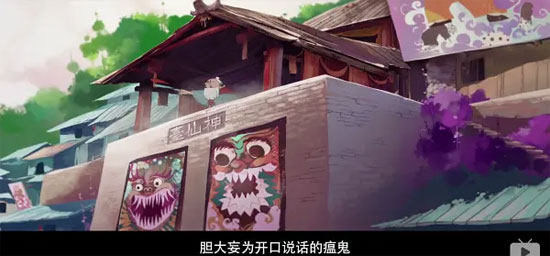
After watching the film, several people around opllx remarked that this setting resembled “1984”… Indeed, all Peanut Town residents lived in a realm of lies, ignorance, fear, and hatred—making their subsequent awakening and rebellion feel inevitable.
Many focused their attention on this aspect, especially given recent events… amplifying a surreal sense of reality and fiction intertwining… Yet this story isn’t quite that “simple.”
Does beginning to think truly mean you’ve matured?
The “fools” of Peanut Town, in their desperate attempt to resemble “divine beings,” awkwardly plastered eyes and mouths onto their faces—only to end up looking more like freaks. The line that left the deepest impression on opllx was the dialogue between the Witch Doctor and Little Jiang before she revealed the truth:
“If I don’t wear them (eyes), they’ll laugh at me.”
“It’s precisely because we wear them that we’ve become a laughingstock.”
After the Great Protector’s rampage at the execution ground and the midwife’s revelation of the truth, the people of Peanut Town began to contemplate reality.
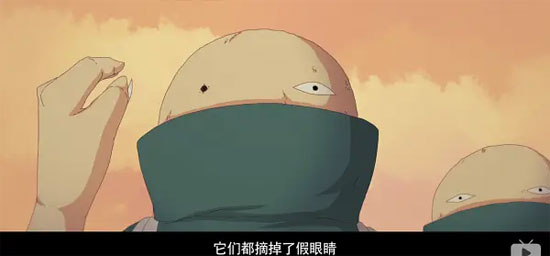
The first to agree with her and remove their false eyes was none other than the “Executioner,” who had long served as the executioner. Having spent years putting “Awakened Ones” to death, the blue-clad musketeers and yellow-clad axemen were the most justified in doubting the Great God Gian. Thus, their leading the “awakening” was entirely reasonable.
But did these peanut people—once incapable of thought, only capable of execution—become more mature and wise once they began to think and speak, pondering the definition and meaning of their own existence? Not necessarily.
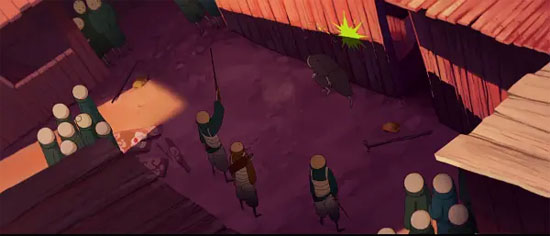
Upon discovering their true identities, the enraged Peanuts rose up in revolt. They spread the truth about the “gods” deceiving and manipulating them, and “eliminating humanity” became their dominant rallying cry. Faced with fellow Peanuts who remained ignorant or refused to accept reality, they resorted to the old method: silencing dissent. They showed no inclination to embrace or tolerate these fellow beings as kin.
After winning “freedom,” the lonely figure of the Hidden Mother made it clear she was not happy. Xiao Jiang was nowhere to be found, the Black Peanut still drifted in the sky, and on the distant cliff, executioners continued to eliminate dissenters…
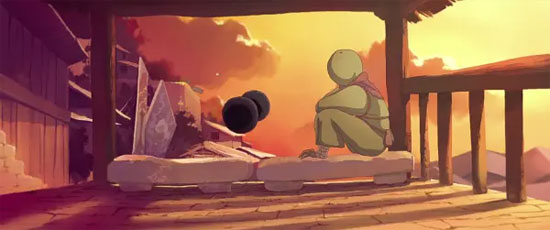
As fellow “Awakened Ones,” Yin Po harbors only boundless hatred and fear toward humanity. In contrast, Xiao Jiang, having been saved by the Crown Prince and having since maintained a relationship of mutual support and respectful friendship with him, retains profound goodwill and hope toward the Crown Prince and humanity at large.
Even towards Jian, who should have been his enemy, Xiao Jiang showed “foolish kindness.” When the Crown Prince, Pao Mao, Jian, and others were in chaos, he pleaded with them to stop arguing, saying, “The tribe is coming to destroy you. You should run too.”
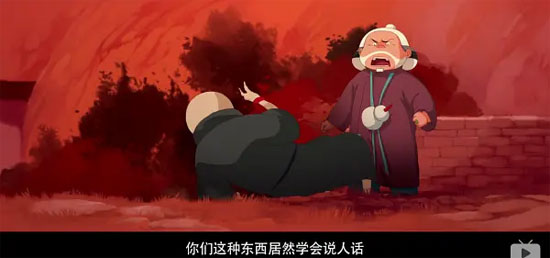
Sadly, Jian only saw Xiao Jiang as a freak. This scene stands as the film’s climax, where characters of diverse identities and stances—the Crown Prince, Jian, Xiao Jiang, Pao Mao, the Great Protector, Luo Dan—all take the stage in succession. Conflicts erupt and escalate relentlessly, with dramatic tension building in waves.
Particularly for the conflicted Mao Mao, the breaking point arrives when, in a moment of mental chaos, he strikes off Xiao Jiang’s head with a single blow.
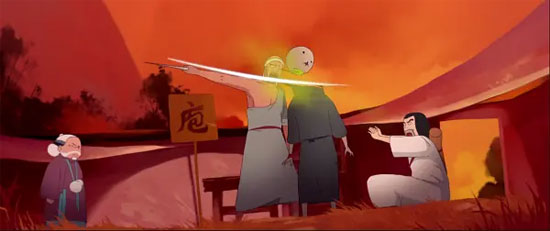
What’s intriguing is that what Ji’an extracted from Xiao Jiang’s mind wasn’t black bug stone, but a brand-new “blue crystal stone.” Anyone with discerning eyes could tell this stone held far greater value than black bug stone.
This suggests two possible scenarios: First, the growth of ghost mushrooms on peanut people might merely mark the initial stage of “maturity.” Having just begun to develop independent thought, their minds currently hold only the black gu stone—a symbol of death. Given time, they would likely mature further and become more complete. Second, the environment in which peanut people grow shapes their inner essence. Fear and hatred breed coldness and cruelty, while care and affection foster sincerity and kindness.
A good story deserves good characters.
A compelling story requires standout characters to bring it to life, and only exceptional characters can deliver a truly remarkable tale. This symbiotic relationship ensures that when discussing a character, we never resort to simplistic adjectives like “so handsome,” “so cute,” or “so beautiful.”
Beyond the central figures of Peanut Man Xiao Jiang and the Hidden Grandmother, every character in “Dahufa” leaves a lasting impression—such as Ouyang Jian, the mastermind behind the conspiracy.
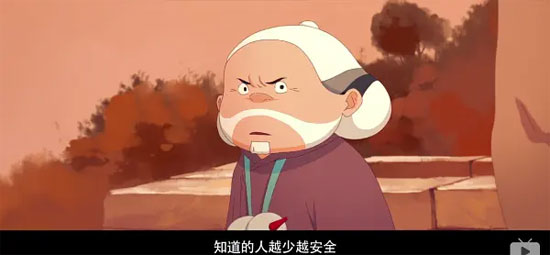
He was an ambitious man whose heart was consumed by hatred and obsession, believing himself to be a god among the ant-monkeys. To him, they were nothing more than domesticated pigs and chickens bred solely to provide him with black bug stones—he never regarded the peanut people as human beings… Little did he know that his superficial understanding of these wondrous creatures meant he could only cultivate black bug stones throughout his life—a form of inferiority in itself.
Then there’s Pao Mao, who claims descent from the Pao clan. Though first encountered dismembering a corpse and professing the ideal of “plucking hearts with a single stroke,” his words and mannerisms resemble those of a simple, passionate dreamer—hardly repulsive.

After discovering that peanut people truly possessed consciousness, he vomited repeatedly. Yet, manipulated by Ji’an, he continued killing. Beyond despising him for aiding tyranny, one likely feels more pity for his passion being exploited.
Compared to the innocent Mao Mao, the precocious Ouyang Ming possesses a cunning and depth of calculation far beyond his years. From his first appearance, we’ve wondered about the origins of this child who seems so out of place in Peanut Town yet persistently seeks the Crown Prince’s favor…
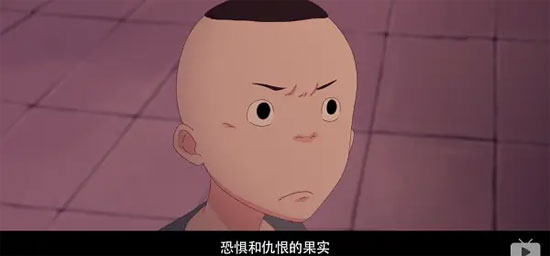
It wasn’t until Xiao Ming revealed himself as Ji’an’s grandson and presented the Crown Prince with a box of premium black bug stone—his grandfather’s treasured heirloom—to swear allegiance that we suddenly realized: he is the most chillingly calculating “schemer” in this film. Not only did he endorse his grandfather’s strategy, but he built upon it with his own schemes. Needless to say, the Crown Prince’s repeated captures and rescues were all part of his plan.
Thus, the “Overseer” Egg he cultivated shares both similarities and differences with Xiao Ming.

At first glance, the diminutive Egg appears as a formidable, fearsome practitioner of dark arts. Yet when the Crown Prince accidentally glimpses him shedding his disguise to play joyfully, we witness his innocent, carefree side—a side shaped by an environment that taught him respect could only be earned through fear and intimidation.
The Crown Prince stands as the most multidimensional character in the film. As the first in line to the throne of Yiwai Kingdom, he couldn’t endure the palace’s endless scheming and tedium. Time and again, he’d sneak out alone, leaving the Grand Protector to clean up his mess as his “shadow.”

Earlier, he seemed utterly determined never to return to the palace. Yet the moment he heard he could paint the palace maids of the West Wing, he happily agreed to go back. Combined with his passion for painting and his genuine friendliness toward Xiao Jiang and Xiao Ming, it’s clear he’s a carefree, unrestrained playboy—one who finds solace in nature and possesses a kind heart.
Yet this very same half-baked crown prince, upon learning the truth, dragged his gravely wounded body and gritted his teeth to issue his first command as a ruler to the Grand Protector: “Kill them.”

“I must be possessed by the plague god—wherever I go, chaos follows. What’s the point of ascending the throne…” The Crown Prince’s words seemed playful, yet in a place like Peanut Town, nearly cut off from the world, he was still surrounded by blood feuds, slaughter, and treachery. How many could truly understand the bitterness, suffering, and bloodshed lurking behind his facade?
Ultimately, the protagonist “Big Protector” emerges not only as the film’s foremost “violent hero,” but also as the comedic foil to the Crown Prince. His immediate rebuke of “Little Furball” for cowardice after praising his boldness reveals his rough exterior concealing a tender heart—a character both fierce and kind.

The Great Protector would walk through fire for the Crown Prince, yet he could also tear him apart with his words… Their relationship, part master-servant, part best friends, is one of the film’s major highlights.
It is through this ensemble of vividly distinct and uniquely characterized characters that the film’s story is presented to the audience in a more complete and exquisitely crafted manner.
Left a hole unfilled
This was the first time opllx had seen Bu Sifan’s work, but this single viewing was enough to make them a devoted fan. However, I’d heard Bu Sifan is a creator who loves to “dig holes” in their own stories—and it seems that reputation holds true…
The film tells a relatively complete story, yet many questions remain unanswered even at the end—like the floating “black peanuts” in the sky.
It’s worth noting that the film’s original title was “The Guardian: The Black Peanut,” highlighting its special significance.

Though the “mother” of the peanut people gradually revealed her true form in the closing scenes, she remained elusively veiled, leaving viewers scratching their heads: What exactly is the Black Peanut? What mysterious species spans from ant-monkeys to peanut people? And what secrets lie within the black spirit stones in their minds—especially the rare “blue crystals”?
Then there’s the dashing black-robed assassin Luo Dan, who executed two adulterous peanut people and shot their “master” Jian. Always silent and killing without blinking, what kind of being is he?

In the post-credits scene, Cai—the film’s sole female character—gathers Luo Dan’s severed limbs. This mysterious woman, deeply connected to Luo Dan, emits a blue glow similar to that of the Great Protector. It seems they may belong to the same lineage, and Luo Dan might be one of Cai’s creations that awakened self-awareness—
Indeed, this short, stocky figure resembling a giant rice dumpling is a unique guardian who has protected the Yiwei Kingdom for centuries. Even he himself doesn’t know why he possesses such extraordinary abilities.

Why can the Great Protector transform steel bars into a gun? What material is the immortal black steel staff made of? What species is the ever-present “little furball”? And what exactly is the Great Protector himself?…
Word has it the “Dahufa” film series is planned as a trilogy. Bu Si Fan clearly intends to dig a hole before filling it in. If this film’s theme is “Who am I?”, then the next two installments will likely explore “Where did I come from?” and “Where am I going?”
Of course, “Dahufa” isn’t without its flaws. Take the dialogue and language, for instance—it’s clear a lot of thought went into crafting lines that are both poetic and profound. Yet, the “acting” feels a bit heavy-handed at times, occasionally creating an awkward sense of artificiality for the audience… Compared to the film’s strengths, these minor imperfections hardly warrant dwelling on.

With such rich detail, I plan to watch this film again. I also hope more friends will recommend this sincere and high-quality film to those around them. In my mind, “Dahufa” has already secured its place as this year’s best domestic animated film.
Please specify:Anime Phone Cases » Dahufa 大護法 2017 Film Review: I think, therefore I am; I am, therefore I am real.